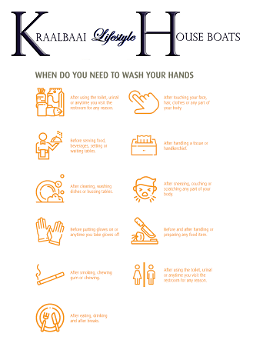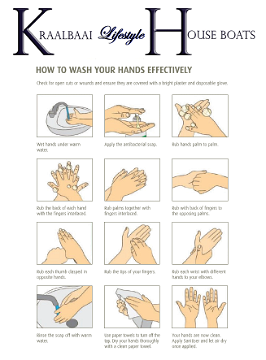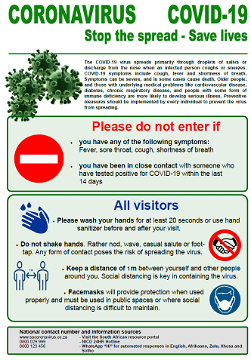Covid-19
What is COVID-19?
Coronaviruses are a large family of viruses which may cause illness in animals or humans. In humans, several coronaviruses are known to cause respiratory infections ranging from the common cold to more severe diseases such as Middle East Respiratory Syndrome (MERS) and Severe Acute Respiratory Syndrome (SARS). The most recently discovered coronavirus causes coronavirus disease COVID-19.
Human Coronaviruses are common throughout the world. There are many different coronaviruses identified in animals but only a small number of these can cause disease in humans.
On 7 January 2020, ‘Severe Acute Respiratory Syndrome Coronavirus 2’ (SARS-CoV-2) was confirmed as the causative agent of ‘Coronavirus Disease 2019’ or COVID-19. The majority of the case-patients initially identified were dealers and vendors at a seafood, poultry and live wildlife market in China. Since then, the virus has spread to more than 100 countries, including South Africa.
Who is most at risk?
Currently, travellers to and in areas where there is ongoing sustained transmission of COVID-19 are at great risk of infection.
Furthermore, the elderly, individuals with co-morbidities and healthcare workers have been found to be at a higher risk of death.
How does it spread?
While the first cases probably involved exposure to an animal source, the virus now is spreading from person-to-person.
The spread of the disease is thought to happen mainly via respiratory droplets produced when an infected person coughs or sneezes, similar to how influenza and other respiratory pathogens spread. Thus far, the majority of cases have occurred in people with close physical contact to cases and healthcare workers caring for patients with COVID-19.
What are the symptoms of COVID-19?
Current symptoms reported for patients with COVID-19 have included mild to severe respiratory illness with cough, sore throat, shortness of breath or fever.
The complete clinical picture with regard to COVID-19 is still not fully clear. Reported illnesses have ranged from infected people with little to no symptoms to people being severely ill and dying
How is COVID-19 treated?
Treatment is supportive (providing oxygen for patients with shortness of breath or treating a fever, for example). Antiviral vaccines are also becoming available. Antibiotics do not treat viral infections. However, antibiotics may be required if a bacterial secondary infection develops.
How can you prevent infection?
• Wash your hands often with soap and water for at least 20 seconds. If soap and water are not available, use an alcohol-based hand sanitiser.
• Avoid touching your eyes, nose, and mouth with unwashed hands.
• Avoid close contact with people who are sick.
• Stay at home when you are sick and try and keep a distance from others at home.
• Cover your cough or sneeze with a flexed elbow or a tissue, then throw the tissue in the bin.
• Clean and disinfect frequently touched objects and surfaces.
COVID-19 Plan for Kraalbaai Lifestyle House Boats
Kraalbaai Lifestyle House boats is committed to providing a safe and healthy workplace for all our workers, guests and visitors. To ensure we have a safe and healthy workplace, Kraalbaai Lifestyle House Boats has developed the following COVID-19 Plan in response to the COVID-19 pandemic.
Our workers guest and visitors are our most important assets. KLHB is serious about safety and health. KLHB’s COVID-19 Plan follows the industry guidance of the Occupational Health and Safety Measures in workplaces COVID-19 (C19 OHS), 2020. It addresses:
· ensuring sick workers stay home and prompt identification and isolation of sick persons;
· social distancing;
· worker hygiene and source controls;
· ventilation protocol;
· workplace cleaning and disinfection protocol;
· drop-off, pick-up and delivery practices and protocol; and
· communications and training practices and protocol.
KLHB has reviewed and incorporated the industry guidance applicable to our business provided by Government for the development of this plan, including the industry guidance of the Federated Hospitality Association of Southern Africa (FEDHASA).
Other conditions and circumstances included in the industry guidance and addressed in the plan that are specific to our business include:
· additional protections and protocols for guests and visitors;
· additional protections and protocols for personal protective equipment (PPE);
· additional protections and protocol for access and boarding;
· additional protections and protocol for sanitation and hygiene;
· additional protections and protocols for work clothes and hand washing;
· additional protections and protocols for managing occupancy;
· additional protocols to limit face-to-face interaction; and
· additional protections for receiving or exchanging payment;
Ensure sick workers stay home and prompt identification and isolation of sick persons
Workers have been informed of and encouraged to self-monitor for signs and symptoms of COVID-19. The following policies and procedures are implemented to assess workers’ health status prior to entering the workplace and for workers to report when they are sick or experiencing symptoms.
Signs of fever, shortness of breath, body aches, loss of smell or loss of taste, nausea, vomiting, diarrhea, fatigue, weakness or tiredness.
Social distancing
Social distancing of at least 1m will be implemented and maintained between workers and guests in the workplace through the following engineering and administrative controls:
· Ferrying Guests will be limited to a maximum of 8 guests on the ferry boat at any given time, this will ensure that a minimum distance can be kept as it will only utilise 60% of the ferry boats capacity;
· No day visitors will be allowed as permitted by SAMSA, until further notice, this will ensure that guest numbers on the houseboat is kept to a minimum with minimum risk;
· Signage and informative brochures will be present on all House Boats for awareness and guidance on social distancing and hygiene;
· Check in will be staggered at different times to ensure guest do not bottle neck on the jetty (Larus, Serenity and Eve 14h00 and Nirvana 15h00).
Hygiene and source controls
Basic infection prevention measures are being implemented at our workplaces at all times. Workers are instructed to wash their hands for at least 20 seconds with soap and water frequently throughout the day, but especially at the beginning and end of their shift, prior to any mealtimes and after using the restroom. All guests and visitors to the House Boats are required to wash or sanitize their hands prior to or immediately upon boarding. Hand-sanitizer dispensers (that use sanitizers of greater than 69% alcohol) are on each houseboat so they can be used for hand hygiene in place of soap and water, as long as hands are not visibly soiled. All cleaning staff will be required to wear disposable gloves, face mask and a washable apron at all times when cleaning and handling linen, receiving staff will be required to wear a mask or face shield when interacting with guests and visitors at all times. All staff may work in casual clothing to avoid wearing the same clothes for more than one shift.
Workers, guests and visitors are being instructed to cover their mouth and nose with their sleeve or a tissue when coughing or sneezing, and to avoid touching their face, particularly their mouth, nose and eyes, with their hands. Workers, guests and visitors are expected to dispose of tissues in provided trash receptacles and wash or sanitize their hands immediately afterward. Respiratory etiquette will be demonstrated on posters and supported by making tissues and trash receptacles available to all workers and other persons boarding the houseboats.
Houseboat and ventilation protocol
Operation of the houseboats, includes necessary sanitation, assessment and maintenance of systems, including water, plumbing, electrical, and heating,
The maximum amount of fresh air is being brought into the houseboats by airing the entire boat when cleaning takes place
Houseboat cleaning and disinfection protocol
Best practices of cleaning and disinfecting have been implemented, including more attention to cleaning and disinfecting of counter, table and work surfaces, equipment, tools and high-volume areas on the houseboat, including restrooms, kitchen and living rooms. Frequent cleaning and disinfecting are being conducted of high-touch areas, including card machine, door handles, railings, etc.
Thorough cleaning takes place between guests and immediately after departure, Linen is immediately placed in a disposable bag and then in the linen bag to avoid contamination for transport, all linen is then washed off site and collected when cleaned.
Appropriate and effective cleaning and disinfecting supplies have been purchased and are available for use in accordance with product labels, safety data sheets and manufacturer specifications, and are being used with required personal protective equipment for the product
Receiving protocol
All staff reporting for work will have their temperature taken and recorded. This will be done by the Houseboat supervisor who fully understands the protocol documented by the National Institute for Communicable Diseases (NICD), records will be kept and any staff member showing signs of a temperature will not be permitted to work or to have access to the houseboats.
All Guest and visitors at the Houseboats will be treated with kindness and respect, but they are to understand that we will do everything possible to ensure the well being of all persons on the houseboats and as such, all safety protocol must be followed including the wearing of masks when interacting with staff of KLHB and regular sanitizing or washing of hands-
· After using the toilet, or anytime you visit the restroom for any reason;
· After touching your face, hair, clothes or any part of your body;
· Before serving food, beverages, setting or working with food or consumable products;
· After handling a tissue or handkerchief;
· After cleaning, washing dishes or clearing tables after dinner;
· After sneezing, couching or scratching any part of your body;
· Before putting gloves on or anytime you take gloves off;
· After smoking, chewing gum or chewing;
· After eating and drinking;
Guest screening will take place before boarding by completing a mandatory trace document, and then only allowing guest that do not show signs of risk or illness to sanitize and board the ferry boat for transportation to the houseboats.
Communications and training practices and protocol
Additional communication and training will be ongoing with new implementations of regulations from government to keep KLHB in line with best practices at all times. Training will be provided to all workers who did not receive the initial training and prior to initial assignment or reassignment. Instructions will be communicated to all workers, guests and visitors about protections and protocols, including:
- social distancing protocols and practices;
- drop-off, pick-up and delivery;
- practices for hygiene and respiratory etiquette;
recommendations or requirements regarding the use of masks, face-coverings and/or face-shields by workers, guests and visitors.
Cancellation Policy
* 7 days or less before arrival = 100% (of booking total)
* 8 - 14 days before arrival = 100% (of deposit)
* 15 - 21 days before arrival = 50% (of deposit)
* 22 - 30 days before arrival = 25% (of deposit)
* 10% Cancellation fee 31 days and above (of deposit)
We do not allow for any full refunds due to Covid-19 or travel restrictions, and encourage all clients to take out travel insurance to mitigate this risk on their own behalf,




Share This Page